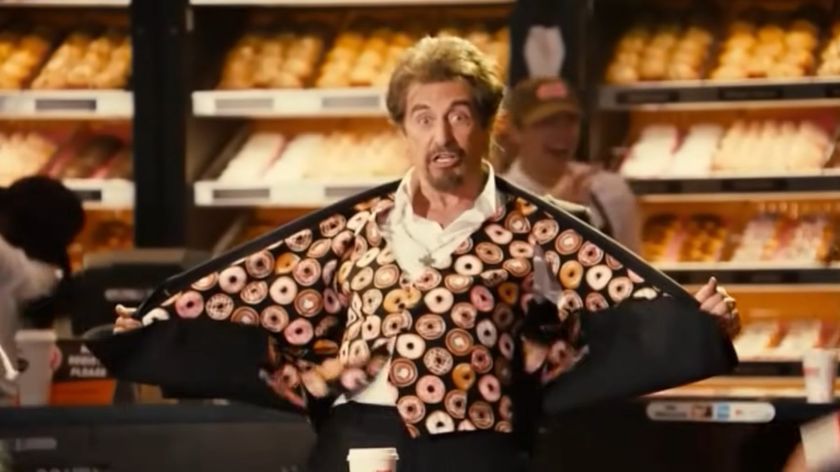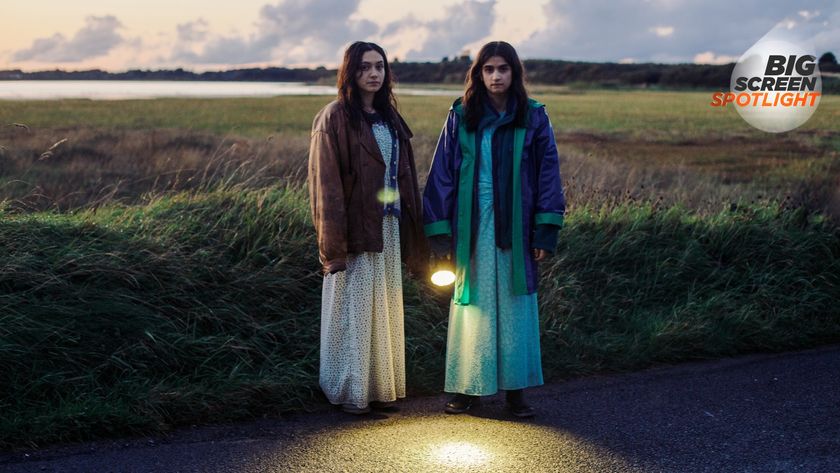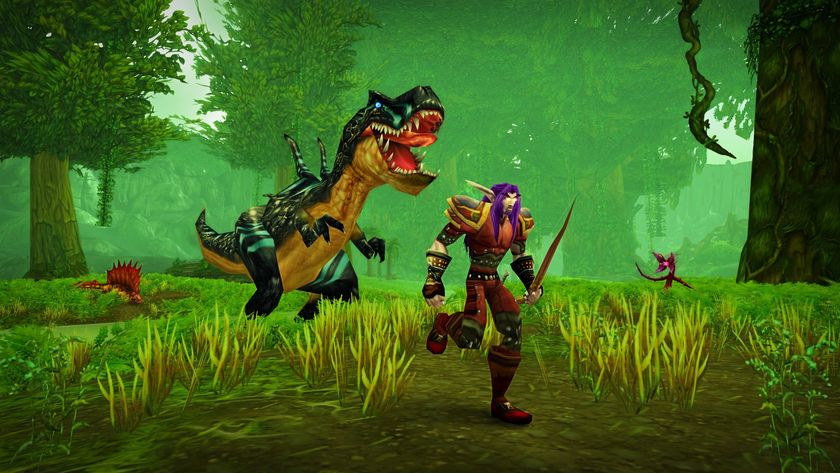David Chase talks Sopranos, Many Saints of Newark, and the TV show that gives him hope for the future
The Sopranos creator talks to 12DOVE and Total Film about the new prequel story
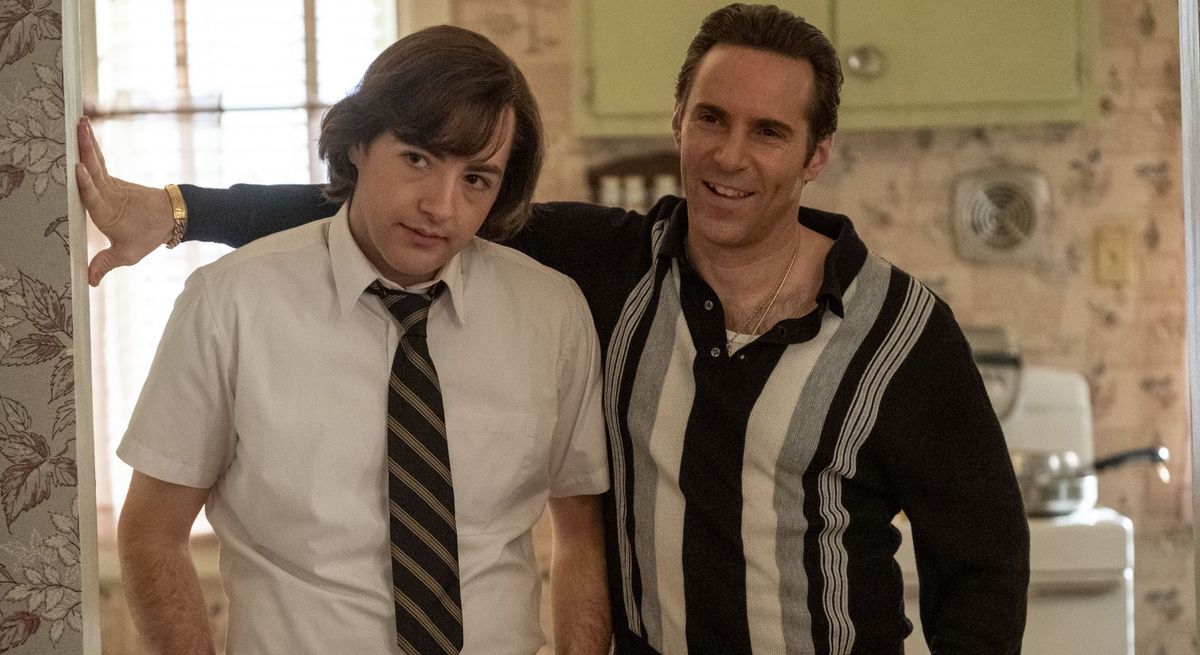
David Chase has been telling stories for a few decades now. The writer, director, and producer won his first Emmy in 1978 for The Rockford Files, a detective drama that he wrote 16 episodes for. Even before then, just after leaving film school and heading to Hollywood, Chase had an idea for a movie set during the 1967 Newark riots that saw racial tensions boil over into violence.
Those riots now serve as the backdrop for The Many Saints of Newark, a "crime melodrama" that tells the story of Dickie Montasanti (that last name translate from Italian to "Many Saints" in English) and his nephew, Tony Soprano. Yes, that Tony Soprano. This is very much a Sopranos prequel, telling the origins of one of TV's most beloved anti-villains.
And while The Many Saints of Newark is centered on Dickie Montasanti, who never appeared – even in flashbacks – during The Sopranos' 86 episodes, the film brings back many beloved characters from the show. Paulie, Pussy, Silvio, and Junior are here, played by new actors.
Speaking with 12DOVE and Total Film over Zoom, Chase – who created The Sopranos and directed both the premiere and the infamous final episode – spoke about revisiting the series. As you would expect from the man who created arguably one of the best TV shows of all time, his words were measured and to the point. Here's our Q&A, edited for length and clarity.
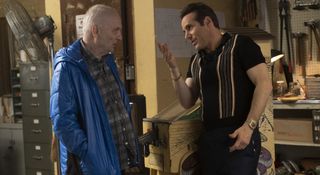
GR: You previously said that the idea for a movie came from someone suggesting you write a story about Tony Soprano's father Johnny Boy, and that got your mind kind of ticking. How did you progress from the idea of making a movie about Johnny Boy – who seems like the more obvious choice, from an outsider's perspective, to write a story about – to a movie about Dickie?
David Chase: Well, that was [Oz creator] Tom Fontana who said that, and that was a long time ago. And that was very general, to do a movie about Johnny and Junior. I think he said the 1930s or '40s. That was a long, long time ago. I just never acted upon it. And, gradually, it fell off... This is way down in the memory banks.
If this had any sort of kernel, little seed, it was from a movie that I had been thinking about when I first got out of film school came to Hollywood, about four white guys in around Newark who joined the National Guard in order to avoid Vietnam. And then they get put in his tank and sent into the riots in New York. That was as far as I got with that idea, but I never forgot it. I mean, I did forget it, but it was it still always appealed to me.
Sign up for the Total Film Newsletter
Bringing all the latest movie news, features, and reviews to your inbox
Were you saving him for a potential movie? He's one of the few characters we never really see in The Sopranos show – unlike Johnny, who appears in flashbacks. There's only one photo of Dickie.
No, we were not saving him for the movie. There was no movie. Not at all.
Ok. You've said previously you were looking to tell a story about a character who was going to be like Tony, someone who had that same appeal.
Not like Tony, but different from Tony, but certainly as evily charismatic, or substantial. We wanted a substantial guy.
One of the biggest differences between these two mob characters is that Dickie seems to believe himself a Saint, which Tony never did.
No, not at all. I would say... well, I probably shouldn't say this.
Go on.
I think Tony was a more intelligent person. But he's part of a different period of time. Dickie came up in the '50s and '60s. And Tony came up, as we see, into the era of psychotherapy, drugs. These are, I guess, you'd call it advantages, or outlooks, that Dickie never had – he never experienced.
It's interesting that The Sopranos starts with Tony thinking about Dickie's time in the Golden Years, which you're exploring here. But The Sopranos always explored modern life. When it started, it seemed to reflect the American malaise of the time period, then 9/11 happens and that has a massive impact on the show. If you had continued the show beyond 2007, what aspects of American life do you think it would reflect today?
Well, you would have to say that it would bring you up to the Trump era. You would be forced to ask yourself, as the writer, what does Tony and company think of Donald Trump? And it would be a big question and a lot of material. And very difficult to write.
It's not the sort of thing you think about doing?
No, I don't know. I never think about that.
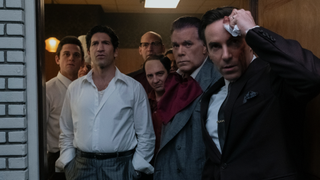
With the show, you have a comfort level knowing people have watched all the episodes that came before. How did you balance writing a movie that's for Sopranos fans and those who are fresh to the series?
Larry Konner, who is my writing partner, and I, and then [director] Alan [Taylor], our intention was plain and simple: to make a really credible, respectable crime drama, or crime melodrama – a gangster movie. Soprano or no Soprano was less important. I mean, we were doing it under the auspices of The Sopranos, under the umbrella, and that's why they gave us the money. But we wanted to honor that and deal with it. But our real intention was to have it be, as much as possible, a real story about real criminals in Newark, New Jersey, in 1967.
You do end up bringing back a few characters and create younger versions of them. How did you avoid writing them as parodies of themselves?
Not writing them as a parody is pretty easy – easier than not acting them as a parody. It's very difficult, a challenge, for an actor to capture the essence of the character without making it into a cartoon or an impression, an imitation. And if they had all turned in imitations of those characters, that would have been fine with me. But we knew that was wrong. It would have satisfied my desire to laugh at the whole thing, and I would have been entertained, but we knew that wasn't the right time.
Was it difficult to not direct this then? You have such an attachment to these characters – and I know Allan directed many episodes of The Sopranos – but giving the reigns over after you helmed the show's finale. Was that tricky?
It got harder and harder as it went along. It became evident that, you know, a movie has to... Apart from maybe the Taviani brothers... I don't know. It finally becomes apparent that a movie has to have one... I don't want to get into that.
Okay, fair enough. Another thing you previously said was that you believe it would be hard today to get The Sopranos made.
Impossible.
I'm wondering, then, which movies and TV shows do you watch and think 'I'm glad this is getting made today'.
I would say... The Queen's Gambit. I'm glad about that.
You know, [it's] different generations. I don't quite get [or] love the humor [of most TV]... I like The Queen's Gambit.
I've been asked to wrap it there, so thank you for your time, much appreciated.
Thanks, you too.
The Many Saints of Newark is in UK cinemas now and reaches US theatres on October 1. The Sopranos movie will also be streaming on HBO Max at the same time as in theaters – get the best HBO prices here.

Jack Shepherd is the former Senior Entertainment Editor of GamesRadar. Jack used to work at The Independent as a general culture writer before specializing in TV and film for the likes of GR+, Total Film, SFX, and others. You can now find Jack working as a freelance journalist and editor.
Most Popular




